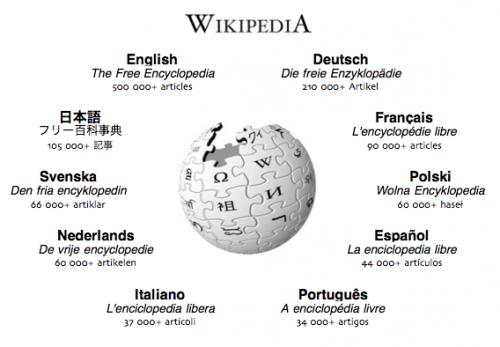Wikipedia's Jimmy Wales to Advertisers: "You Cannot Control the Conversation but You Can Participate In It"

Originally published May 16, 2007
Digg's got the AACSLA's number. Literally. That is: 790,815,794,162,126,871,771,506,399,625.
This is the decryption key for unlocking HD DVD code - the code that developers brayed even the Pentagon wouldn't be able to crack. Does Digg's now willful violation of the Digital Millennium Copyright Act (DMCA) spell the demise of social media, if not as a medium, as a viable model for advertisers?
Early consensus seems to hold that this seismic event was not wholly a blessing or a curse - but that it was inevitable. A bit of forensic analysis reveals a few takeaways about the nature of Web 2.0 and community; lessons that advertisers ignore at their peril.
This spring the AACS-LA cease-and-desisted Google. The behemoth complied, taking down or censoring pages on Blogger and other Google-owned properties. Then AACS-LA approached Digg, the social media network.
An odd thing happened. Founder Kevin Rose initially kowtowed, but then the community rebelled. In a matter of days some 9,410 links to the key mushroomed to 22,000. "The Streisand Effect" - dubbed for the blowback the Diva received after suing to have photos of her McMansion erased from public records of the California coastline -- was unleashed.
NYU Professor Jay Rosen, a pioneer of open-source journalism, offers a clear-headed coda: "When the whole value of your site is that a user community hangs out there, doing things that create value, then the nominal owner is not the actual owner. The users have a lot of power. It's fine to say that there needs to be some rules. But it's naive to say that the operators of the site are in charge. If the rules aren't an expression of the user community and its core beliefs, they won't work. Indeed, they won't rule."
Not everyone agrees. This loss of presumptive control has both shocked and cowed bystanders. Principally, would-be advertisers. Jaffer Ali, CEO of EVTV1, a moderated video portal, told Jack MyersBusiness Media Report that "unless there is an editorial filter between incoming content and the eventual advertiser, there is no long-term business. Let ONE advertiser have the herd or mob turn on them and they have zero control."
Ali observed that once "a community starts to feel empowered to oversee the rules of the game, they will not react passively if they discover their control was an illusion. Same in the real world. We are under the illusion, for example, that foreign policy is a democratic process. We suffer many illusions in the real world, but our ability to do something about it is hampered. In cyberspace, it is easy to have collective action…and quick."
Is this a bad thing? If you want to monetize, perhaps. But if you are interested in setting a policy agenda, JD Lasica(author of Darknet) told Jack MyersBusiness Media Report, "Digg and other social media sites will be increasingly influential when it comes to setting the agenda on particular topics -- a role that Big Media had enjoyed a monopoly on until now." Ultimately, this influence will attract ad dollars.
And Jimmy Wales, founder of Wikipedia, told Jack MyersBusiness Media Report that despite its controlled chaos that there is no shortage of advertisers. His advice to advertisers wary of social networks: "You cannot control the conversation but you can participate in it."
For many, the Digg community did not morph into a mob. Rather, it expressed the public's distaste for the DMCA, which prohibits even the discussion of circumventing encryption. Diggers were neither wolves nor sheep. They were participating not in a cyber riot, but in an act of civil disobedience.
Professor Rosen offered that "users have the power in open systems and they were prepared to use it. [Kevin Rose's] only options were to shut down his own site, and alienate the user community in a major way, or defy the threats of legal action. Attention should focus in the attorneys who sent the cease and desist notices and what they thought they were going to accomplish. Now that number is everywhere." Both the EFF and the New York Times share this position.
Said AACSLA spokesman Michael Ayers, "We hope the public respects our position and complies with applicable laws." Clearly, not.
Amid an outcry over a "loss of control," it's important to acknowledge that mischief and mayhem occurs, too, in the bricks and mortar world. Sure Stephen Colbert can have his viewers bring elephants to extinction on Wikipedia, but Howard Stern can also game American Idol.
Communities that balance integrity withstability will obviously win the day. Current TV has such a model. Content creators seamlessly share creative control with staffers. Within the broad community resides an archetypical customer from a brand perspective: those Current members who produce viewer created ad messages (VCAMS) for clients including Toyota and L'Oreal. Ongoing relationships within Current mean that the community is invested in following copyright law, such as properly securing music clearances.
Recent events indicate that crises, such as the Digg imbroglio, can reveal the depth of community. Not until the Copyright Royalty Board's decision to prohibitively raise royalty rates for Internet Radio broadcasters did Pandora.com truly tap into its base.
But can Digg be weaponized further? JD Lasica has his doubts. "What they still can't do is galvanize a political movement around an issue like Net Neutrality. They can increase awareness about a topic, but turning that into action is another matter (unless it's a low-cost action like spreading a number around the Net)."
Since this flap, Digg has moved up from the 100th most trafficked Web site to 22. And Google? It's got the illicit number again. This time, it's on YouTube.


